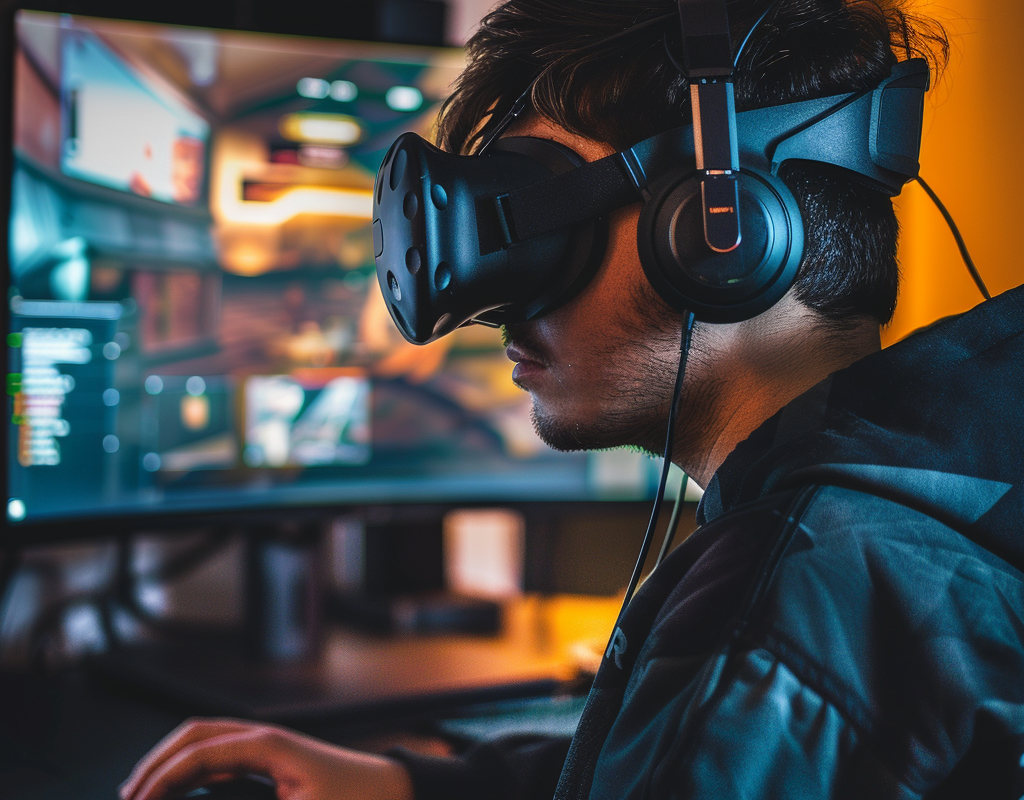Blockchain gaming is revolutionizing the way we interact with virtual environments. By integrating blockchain technology into gaming, developers have created a new paradigm that combines transparency, security, and ownership of in-game assets. This transformative approach is poised to redefine the gaming industry, offering players unprecedented control and engagement.
Blockchain technology, fundamentally a decentralized ledger system, is applied in gaming to secure transactions, verify ownership, and ensure the authenticity of digital assets. Games utilizing blockchain can offer players verifiable ownership of in-game items, enabling true asset ownership and creating real-world value for virtual goods. This innovation not only enhances the gaming experience but also opens new economic opportunities for players and developers alike.
Benefits of Blockchain in Gaming
One of the primary benefits of blockchain in gaming is the enhanced security and ownership of in-game assets. Traditional gaming systems often centralize asset control, leaving players vulnerable to hacks, fraud, and loss of valuable items. Blockchain technology mitigates these risks by providing a decentralized and tamper-proof ledger, ensuring that once an item is purchased or earned, it belongs solely to the player. This robust security framework fosters a more trustworthy and engaging gaming environment.
Moreover, blockchain enables transparency and fairness through decentralized protocols. In conventional gaming systems, players must rely on the game developers’ integrity, which can sometimes lead to biased outcomes or unfair practices. Blockchain’s decentralized nature ensures that all transactions and gameplay mechanics are transparent and verifiable by all participants. This level of transparency builds trust within the gaming community and ensures a level playing field for all players.
Another significant advantage is the facilitation of peer-to-peer transactions. Blockchain allows players to trade in-game assets directly with each other without the need for intermediaries. This direct interaction not only speeds up transactions but also reduces costs, providing a more efficient and user-friendly trading experience.
Finally, blockchain technology supports the creation of digital economies within games. Players can earn cryptocurrency through gameplay, which can be traded or sold on various platforms. This integration of real-world value into gaming provides additional motivation and rewards for players, enhancing the overall gaming experience and encouraging longer engagement with the game.
Immersive Virtual Worlds
The concept of immersive virtual worlds has evolved significantly over the years. Early games provided simple, text-based adventures, but today’s virtual environments are rich, detailed, and deeply interactive. These worlds offer players a chance to explore, create, and connect in ways that were previously unimaginable. The level of immersion in these games is crucial, as it allows players to fully engage and invest in their virtual experiences.
For modern gamers, immersion is of paramount importance. The ability to lose oneself in a virtual world, experiencing it as if it were real, is a major draw. Advanced graphics, realistic physics, and complex narratives contribute to this sense of immersion. However, true immersion also requires that players feel a sense of agency and ownership within the game, which is where blockchain technology comes into play.
Blockchain can enhance these immersive experiences by providing secure and verifiable ownership of in-game assets. When players know that their virtual possessions are genuinely theirs, the emotional and financial investment in the game increases. This sense of ownership is further enhanced by the ability to trade and sell assets, creating a dynamic and engaging virtual economy.
The integration of blockchain also supports the development of more intricate and engaging game mechanics. Developers can create decentralized autonomous organizations (DAOs) within games, allowing players to vote on game developments and participate in decision-making processes. This level of involvement deepens the sense of immersion, as players feel that they have a direct impact on the evolution of the game world.
Integration of Blockchain in Virtual Worlds
There are already several examples of current blockchain-based virtual worlds that demonstrate the potential of this technology. Games like Decentraland and Cryptovoxels allow players to purchase, develop, and trade virtual real estate using blockchain technology. These platforms provide a glimpse into the future of gaming, where virtual and real-world economies intertwine seamlessly.
In Decentraland, for instance, players use the cryptocurrency MANA to buy plots of land and build whatever they can imagine. The blockchain ensures that these digital properties are unique and owned by the purchaser, creating a secure and vibrant virtual economy. Similarly, Cryptovoxels offers a voxel-based world where ownership and transactions are governed by blockchain, enabling users to create and trade their creations with confidence.
Blockchain also enhances the user experience in virtual environments by providing trustworthy and transparent interactions. Smart contracts can automate transactions and gameplay mechanics, ensuring that outcomes are fair and predictable. This reliability is crucial for maintaining player trust and fostering long-term engagement.
Furthermore, blockchain can enable cross-platform interoperability. Players can transfer assets and currencies between different games and platforms, breaking down the traditional barriers that isolate game worlds. This interconnectedness expands the possibilities for players, allowing them to carry their investments and achievements across various virtual landscapes.
Challenges and Considerations
Despite its potential, blockchain gaming faces several challenges and considerations that must be addressed. One of the most significant issues is scalability. Current blockchain networks, such as Ethereum, often struggle with high transaction volumes, leading to slow processing times and high fees. These limitations can hinder the seamless gaming experience that players expect. However, ongoing developments in blockchain technology, like the implementation of Layer 2 solutions, aim to alleviate these scalability concerns.
Another challenge is the regulatory and legal landscape surrounding blockchain gaming. Different jurisdictions have varying regulations regarding cryptocurrency and digital assets, creating a complex environment for developers and players. Ensuring compliance with these regulations while fostering innovation is a delicate balance that the industry must navigate carefully.
The future of immersive virtual worlds in gaming is inextricably linked to the integration of blockchain technology. By providing enhanced security, transparency, and true ownership of in-game assets, blockchain has the potential to revolutionize the gaming industry. However, to fully realize this potential, the industry must address challenges related to scalability, regulation, sustainability, and accessibility.
- Enhanced security and ownership of in-game assets.
- Transparency and fairness through decentralized protocols.
- Creation of dynamic digital economies.
- Examples of current blockchain-based virtual worlds.
By overcoming these challenges, blockchain gaming can create truly immersive and engaging virtual worlds, offering players unprecedented control and a richer gaming experience. The future of gaming is here, and it is powered by blockchain. In addition to this article, we would like to advise you to read our article where we talked about smart contracts in sports.
FAQ
Blockchain enhances security by providing a decentralized and tamper-proof ledger.
Blockchain ensures fairness by enabling transparent and verifiable gameplay mechanics.
Blockchain supports virtual economies by allowing direct peer-to-peer transactions and the creation of real-world value through in-game assets.




